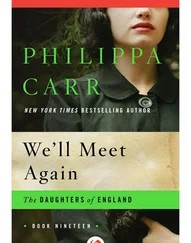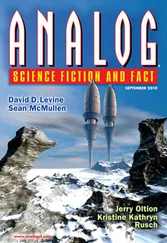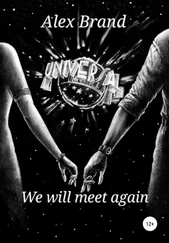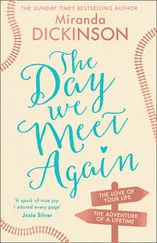Changing your name, or changing your face, is easy compared with changing your lifestyle. But I’ve made up my mind. The same way I always have to force myself to go to the dentist after a long interval. One quiet evening, I approached my daughter as she was doing her homework. Before beginning this difficult — and time-consuming, as I anticipated initially — conversation, I twice tried to fix the creased carpet with my foot, pushing both her slippers tidily into their spot. My daughter was facing away from me, doing a geography assignment, reading about the glaciers that once slid over Europe and so altered the continent’s landscape forever.
“My child,” I said, “I have something important to tell you. I got a phone call from a very wise publisher, you know. He suggested I write a novel. For money. I’ve decided to take his advice and become a real writer. I’m going out … I have to think it all through. Perhaps we’ll have to change the way we live. Hitch our banal existence to eternity. Just like the dead.”
“I have a test tomorrow,” she replied. “If you go by the supermarket, bring back some wafers. Two packages. The chocolate ones, please.” Without even turning around.
I put a spare pair of panty hose, a bottle of valerian extract, some brandy, a small volume of Nabokov, and my daughter’s photograph into a canvas bag bearing the slogan “Don’t Leave Home Without It.” Then I put on my coat in the hallway. Opening the door to the frosty Old Town — put into perfect order by our new mayor, but still full of surprises — I find myself telling myself that I am absolutely doing the right thing. That my mother, who died three years ago and in whose coffin I put a sprig of jasmine while no one was looking, would forgive me.
My eighth-grader was surely too young to understand that if you want to become a real writer, you leave home for good. You begin to shape your life, like Jurgis Kun  inas would say, “from the start.” Writers are damned. The truly talented and passionate ones abandon their children entirely. To wives and husbands. Sisters and brothers. Fate and the law. Writers follow the rhythm of their hearts; they live apart, humming with everyday life despite keeping their eyes on eternity. In order to protect his or her talent, in order to go on providing so much happiness to thousands of very likely unhappy people, a writer cannot have either a house, or a job, or money, or any sort of peace, spiritually speaking. He must be steeped in loneliness. Must torture himself. Drink a lot, and starve a lot … At this point, the rhythm of my heart, without my even remembering to consult it, testified that I was on the right path. Invention must be the writer’s daily and only bread. The plowed fields of inspiration, watered by our bloody sweat, where tender crocuses open … (Semantically speaking, perhaps “delicate” would have been a better adjective than “tender.”) Exotica. Complaints about God. Eternity. The dead. Image after image. And … how did he put it? Interspersed with recipes. The novelist must listen for whom the bell tolls, and climb the magic mountain. Wander from here to eternity, across the river and into the trees. Like Homo Faber, the invisible man, or the mighty angel. I turn around … On the second floor, light leaks through the linen curtains, out here into the heart of darkness. Bring home some wafers. Two packages … chocolate. Ahead: the city and the dogs. Or do I mean the time of the hero. Light in August, anyway. One hundred years of solitude. Immortality. Feeling the tears brimming up in my eyes, I’m gone with the wind … Yes, blown from here to eternity. Look homeward, angel. But it’s not for those who have left to return.
inas would say, “from the start.” Writers are damned. The truly talented and passionate ones abandon their children entirely. To wives and husbands. Sisters and brothers. Fate and the law. Writers follow the rhythm of their hearts; they live apart, humming with everyday life despite keeping their eyes on eternity. In order to protect his or her talent, in order to go on providing so much happiness to thousands of very likely unhappy people, a writer cannot have either a house, or a job, or money, or any sort of peace, spiritually speaking. He must be steeped in loneliness. Must torture himself. Drink a lot, and starve a lot … At this point, the rhythm of my heart, without my even remembering to consult it, testified that I was on the right path. Invention must be the writer’s daily and only bread. The plowed fields of inspiration, watered by our bloody sweat, where tender crocuses open … (Semantically speaking, perhaps “delicate” would have been a better adjective than “tender.”) Exotica. Complaints about God. Eternity. The dead. Image after image. And … how did he put it? Interspersed with recipes. The novelist must listen for whom the bell tolls, and climb the magic mountain. Wander from here to eternity, across the river and into the trees. Like Homo Faber, the invisible man, or the mighty angel. I turn around … On the second floor, light leaks through the linen curtains, out here into the heart of darkness. Bring home some wafers. Two packages … chocolate. Ahead: the city and the dogs. Or do I mean the time of the hero. Light in August, anyway. One hundred years of solitude. Immortality. Feeling the tears brimming up in my eyes, I’m gone with the wind … Yes, blown from here to eternity. Look homeward, angel. But it’s not for those who have left to return.
It gets dark. The Old Town, perhaps because of all its lights, gets dark more slowly than out beyond the railroad tracks. Out there lives a jeweler who once made me a silver ring with an alexandrite stone. The sky this night was exactly that color — purple with pink edges. And the evening was like the one after my divorce when I smashed the wedding crockery painted with forget-me-nots. I went out that night dressed in a jogging suit, with a cardboard box under my arm, and battered six cups and a coffee pot on the railroad ties. Back then, the big trees next to the railroad tracks hadn’t been cut down yet. When I took out the garbage, bats would fly over my head like rocks from a slingshot.
In the dusk, the thought came to me that a person isn’t aged by years but by perceptions. I should start my novel with an episode in paradise. The narrator will be dead, but it should seem to the readers that the woman is only relaxing in a small resort town. A long walk on a short pier is on the agenda, as the cynical English would say. Because I’m a pessimist. I’m always gathering up the worst impressions from my past and out of them cobbling together a future just as grim. Nabokov said about novels: “It’s queer, I seem to remember my future works, although I don’t even know what they will be about. I’ll recall them completely and write them down.” Nowadays, when you bring a manuscript to your publisher you can suggest a design for the cover at the same time. And I’ll give the book an ordinary sort of title: In Those Days, When I was Alive . Here’s a shot at it:
“While resting, my thoughts often returned to the past. Sometimes, for no apparent reason, the wind would suddenly come up and carry slight swirls of sand along the streets. They reminded me of the silhouette of the genie escaped from his bottle in a book of old fairy tales I read as a child. On the far bank, little bells never stopped ringing, seemingly unconnected to the wind. I would imagine that they were hanging in clusters from the necks of camels, although more likely they decorated some goat or cow. By the way, I also noticed the smell of manure. I somehow never thought that even here, so close to God, domestic animals would be grazing freely and houses would be built according to some kind of social hierarchy as well. Sand, berries, and clouds resembling stuffed toys. It was impossible to reconcile the notion of camels — wandering in from a photo in some Turkish tourist brochure (‘Marmaris … We all deserve paradise at least once in our lives’) — with the blackberries ripening next to that stone cottage. An impossible combination, like the lions and birch trees in Wiiralt’s etchings. Standing a while by the river, one would inevitably see household goods floating by — a striped mattress, for example, and bits of wood from rotten doorjambs. It was difficult to believe that a modern black bus (if of uncertain manufacture) brought me to those mountains. When we were leaving, the director warned us to under no circumstances offer the driver money. Even though it was unlikely that the elderly people who’d spent the night on the bus had any. Aside from one or another anniversary coin, perhaps. As soon as I got on the bus, we were gliding down the mountain road without a sound, and I remembered an advertisement for a luxury car. Above there was a gold BMW; below, in letters as red as blood: ‘In a car like this, the only thing that clatters is your wife’s teeth.’”
So far, in this text, what I like most is the ambiguity about that “director,” which makes the reader wonder, is this a movie, a tour, or a funeral …? Next to the horrible intersection by the Aušros Gate, I stopped to wait for the green light. Across from me was a billboard with a picture of a couple of kids drawn with mushroom caps on their heads: “They sprout out of nowhere. Drivers, beware!” I stepped back from the road a bit. Because my aunt had just recently told me about two incidents that had stuck in her mind all her life: One of them was the death of a child, the other the deaths of two women. Happily, my healthy instinct for self-preservation had already managed to erase all the details of the child’s death from my memory, but regarding the two women, it all happened in the sixth decade of the last century. They were walking just here, in the spot where I stand now. My aunt was behind them on her way to the Pedagogical Institute. She was studying German and Spanish, at the time. In Spanish, the word “to live” in the second person plural is vivís . But, in Spanish, v is pronounced like b , so the word comes out sounding like the word for “penis” in Lithuanian. Well, my aunt and one of her friends just couldn’t keep from laughing when their elegant lecturer, wearing a snood on her hair, and so very much in love with the doomed heroes of the Spanish Civil War, would say bybys as she conjugated the verb, and on that day they were even expelled from the lecture hall for it. So, the two women walking in front of my aunt wanted to cross to the other side of the street, but at that moment a truck suddenly turned from one side of the Aušros Gate toward the railroad station. It was carrying thick plates of glass. During the sharp turn, some of the plates of glass that were strapped to its side peeled off and cut the women on the sidewalk to pieces. After that, the word vivís had a completely different meaning for my aunt. She said that it became as familiar to her as her raincoat. And even a bit Lithuanian. And my uncle, hearing this story, commented, “Well, didn’t you know that God is on the other side of the Gate of Dawn?”
Читать дальше
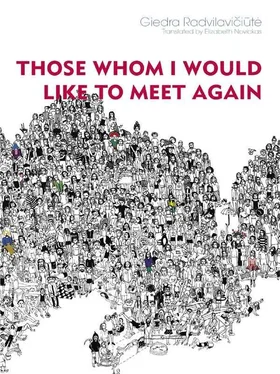
 inas would say, “from the start.” Writers are damned. The truly talented and passionate ones abandon their children entirely. To wives and husbands. Sisters and brothers. Fate and the law. Writers follow the rhythm of their hearts; they live apart, humming with everyday life despite keeping their eyes on eternity. In order to protect his or her talent, in order to go on providing so much happiness to thousands of very likely unhappy people, a writer cannot have either a house, or a job, or money, or any sort of peace, spiritually speaking. He must be steeped in loneliness. Must torture himself. Drink a lot, and starve a lot … At this point, the rhythm of my heart, without my even remembering to consult it, testified that I was on the right path. Invention must be the writer’s daily and only bread. The plowed fields of inspiration, watered by our bloody sweat, where tender crocuses open … (Semantically speaking, perhaps “delicate” would have been a better adjective than “tender.”) Exotica. Complaints about God. Eternity. The dead. Image after image. And … how did he put it? Interspersed with recipes. The novelist must listen for whom the bell tolls, and climb the magic mountain. Wander from here to eternity, across the river and into the trees. Like Homo Faber, the invisible man, or the mighty angel. I turn around … On the second floor, light leaks through the linen curtains, out here into the heart of darkness. Bring home some wafers. Two packages … chocolate. Ahead: the city and the dogs. Or do I mean the time of the hero. Light in August, anyway. One hundred years of solitude. Immortality. Feeling the tears brimming up in my eyes, I’m gone with the wind … Yes, blown from here to eternity. Look homeward, angel. But it’s not for those who have left to return.
inas would say, “from the start.” Writers are damned. The truly talented and passionate ones abandon their children entirely. To wives and husbands. Sisters and brothers. Fate and the law. Writers follow the rhythm of their hearts; they live apart, humming with everyday life despite keeping their eyes on eternity. In order to protect his or her talent, in order to go on providing so much happiness to thousands of very likely unhappy people, a writer cannot have either a house, or a job, or money, or any sort of peace, spiritually speaking. He must be steeped in loneliness. Must torture himself. Drink a lot, and starve a lot … At this point, the rhythm of my heart, without my even remembering to consult it, testified that I was on the right path. Invention must be the writer’s daily and only bread. The plowed fields of inspiration, watered by our bloody sweat, where tender crocuses open … (Semantically speaking, perhaps “delicate” would have been a better adjective than “tender.”) Exotica. Complaints about God. Eternity. The dead. Image after image. And … how did he put it? Interspersed with recipes. The novelist must listen for whom the bell tolls, and climb the magic mountain. Wander from here to eternity, across the river and into the trees. Like Homo Faber, the invisible man, or the mighty angel. I turn around … On the second floor, light leaks through the linen curtains, out here into the heart of darkness. Bring home some wafers. Two packages … chocolate. Ahead: the city and the dogs. Or do I mean the time of the hero. Light in August, anyway. One hundred years of solitude. Immortality. Feeling the tears brimming up in my eyes, I’m gone with the wind … Yes, blown from here to eternity. Look homeward, angel. But it’s not for those who have left to return.